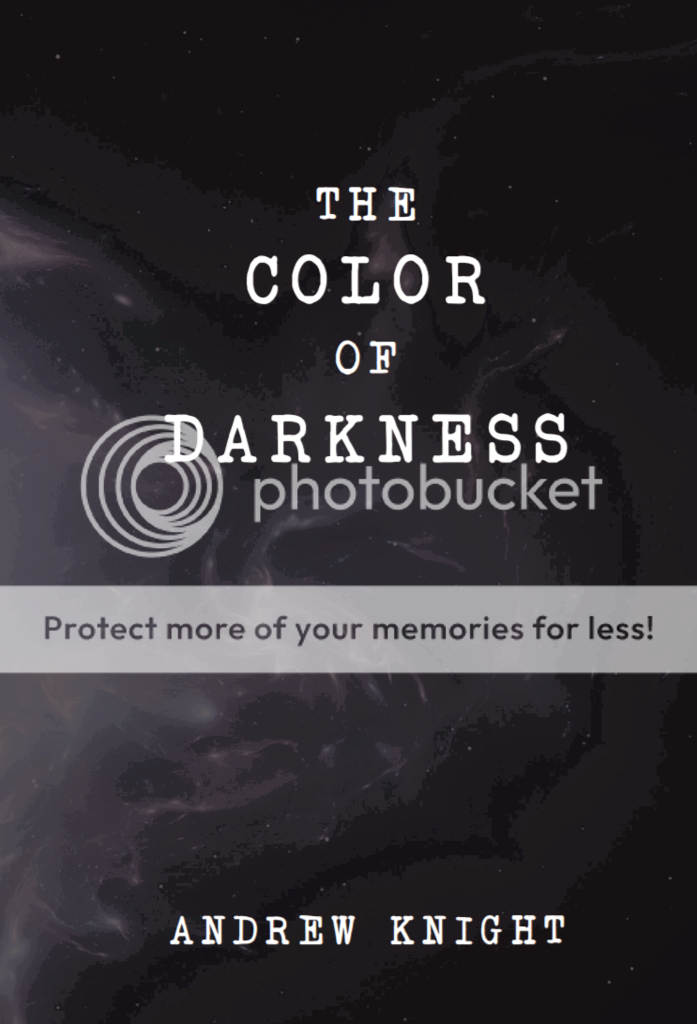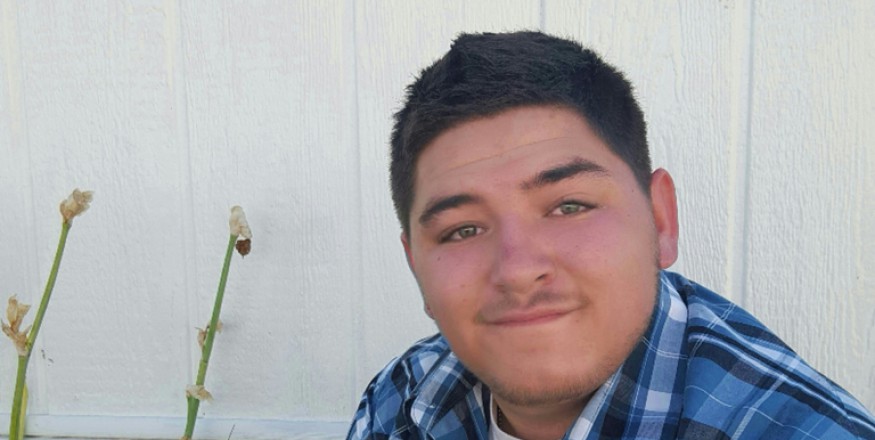
Andrew Knight’s debut YA novel, The Color of Darkness (TCOD), is a must-read for any young adult fiction lovers. The story is very heartfelt and very easy to follow. It’s relatable, it’s a page-turner, and it contains a great sense of humor. There’s a sort of magic chemistry among the high school characters; perhaps that’s the reason for the success of the novel.

Andrew Knight is born in Colorado, USA.
1285Please respect copyright.PENANANOZXSdveoh
The Interview
Author: Andrew Knight
Interviewer: Coen Wonder
1
Coen: Tell us the core message of The Color of Darkness (TCOD) you want readers to take away in one sentence.
Andrew: If there's any message I'd like readers to take away from TCOD, it's that love comes in many different forms, and it's really the thing that can heal any wound.
2
Coen: When did you start writing? Did you always wanted to be a writer? Was it a surprise to you when TCOD got published?
Andrew: I've been writing for as long as I can remember! Writing, as a hobby, has always stuck with me but I never really considered it as an occupation until TCOD began receiving a lot more attention than I had anticipated. And yes, I was both surprised and very excited when I got the email the the novel had been accepted for publishing.
3
Coen: What are your views on Young Adult (YA) Fiction? Is it your favorite genre?
Andrew: Interestingly enough, YA Fiction is something I didn't get into until I was about seventeen (which isn't very long ago). I grew up obsessed with Fantasy and Sci-Fi, and it wasn't until I read John Green's Looking For Alaska that I discovered quality contemporary YA Fiction. The reason I fell in love with the genre is that it takes so many issues that young people face today and it portrays them in a way that makes sense to a teenager in the height of all the drama and confusion they must face. We live in a face-paced world with instantaneous communication and information; it's nice to have a genre that's dedicated to helping teens slow down and take a close look at the mystery of the world around them. It's absolutely my favorite genre!
4
Coen: Any authors or books that influenced you as a writer that you would recommend?
Andrew: Green's Looking For Alaska, to be sure! I also highly recommend Catcher in the Rye by J.D. Salinger, and A Separate Peace by John Knowles. Both novels are much older but they were both instrumental in helping me realize that writing doesn't have to be formal and decorative, it can be honest and critical as well.
5
Coen: What was the time frame for writing this book?
Andrew: I started writing TCOD the winter of my senior year of high school, when I was seventeen years old (2013). I wrote the first five chapters in a few months and then stopped writing because I got so busy. I picked it back up about a year later in the early summer and wrote a little bit here and there until it really started to take off on Penana. I think I finished the majority of the book between September and December of 2015.
6
Coen: What is the hardest part of writing and publishing TOCD?
Andrew: I think the hardest part was finding the motivation to finish it. Writing is one of the few areas where I'm very critical of myself, which can make it difficult to continue if I think I'm doing a bad job. I actually read a quote the other day that went something like "writing with your inner-critic is like singing while punching yourself in the throat," which has definitely been my experience in the past. The community on Penana is what actually drove me to finish the novel, the encouragement and the excitement of the people who were reading it was invaluable.
7
Coen: One of the things I loved the most in TCOD is the authentic and relatable teen characters (Andy, Nova, and Rick). Where did the inspiration come from?
Andrew: Funny you should ask! My favorite English teacher used to stress in his Creative Writing class that we should "write what we know," which sounds like pretty generic advice but was actually eye-opening for me because I was used to creating entirely different worlds in my head. When I started TCOD, I decided to input as much of my life as possible: Puck and I share many traits, including the love for words, but we aren't exactly alike. Nova is a bit of a mix of every girl I've ever loved, but she also represents the ways my heart has been broken. Rick is probably the closest to me in personality, but he's also a medley of the closest friends I've had while growing up.
8
Coen: Did you wanted to reflect a certain American culture?
Andrew: Yes! I grew up the state of Colorado, which I still call home, and it's a place unlike any other in America. We have big cities, tiny towns, farming and agriculture, and abundant art and trendy, modern culture. I grew up on the edge of Denver in one of those cookie-cutter suburbs but I spent all of my summers with family living out in the middle of nowhere. I wanted to capture a picture of what it's like to live in a tiny town without the stereotypes of uneducated, ignorant people that everyone just assumes rural communities are made up of. Sure, blue-collar, small town America may be old-fashioned and traditional, but they still love as deeply and live life as fully as anyone who lives a more modern lifestyle in a big city.
9
Coen: What's next for you?
Andrew: I'm already working on my next novel, an examination of mental illness in modern society called From: Colorblind To: Happiness. TCOD was such an adventure for me, but the critical little devil on my shoulder always makes me wonder if the message of the novel was substantial enough. My goal for the next novel is to keep the same light-and-dark humor that I love to write while incorporating a more serious subject. I'd like to make people think in their heads and feel in their hearts a little more deeply.
Aside from continuing to write, I plan on going back to college to pursue a degree in English Literature and Creative Writing, which I'd like to use to become a high school teacher.
10
Coen: What advice would you give to young aspiring writers? Any tips to help them write better?
Andrew: If there's anything I could tell young writers, it that you should read as much as you can! Just because we are writers doesn't mean we shouldn't explore the works of other writers. I like to think of it as learning from other people's victories rather than mistakes; there are some truly amazing novels out there, and the more you read the more you'll discover what works and what doesn't. As a side, note, I'd like to encourage you to never give up on your dreams, whatever they are. You can't force yourself to be something you're not, so take your passions and go wild with them. Your happiness won't be far behind if you do!1285Please respect copyright.PENANANcK32TyZgp
1285Please respect copyright.PENANAPHK0gai9la
11
Coen: How can readers discover more about you and your work?
Andrew: I have a blog called The Knight Owl which I update periodically with information about my current projects and any news concerning my past work (just TCOD at the moment.) I also write writing-advice articles for young writers and throw together random posts about my thoughts on various subjects. You can find all of that at theknightowl.net. I will be getting a formal website for my work by the end of the summer as well, just check the blog for the address!
Follow Andrew Knight:
Penana: Andrew Knight
Twitter: @inkblackknight
Blog: theknightowl.net
ns3.137.183.239da2





















